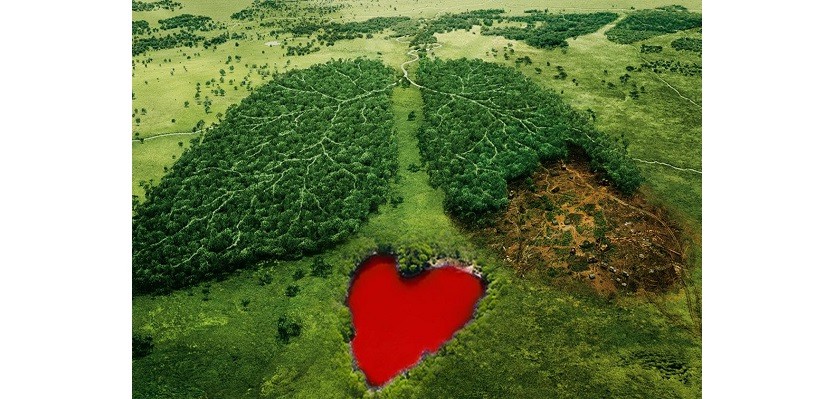The lungs of the earth: the Amazon rainforest

Hello, I’m Sarah Heath and you’re listening to 10 Minutes for the Planet on English Waves.
The size of one of the planet’s biggest natural phenomenon – the Amazon rainforest – is almost unfathomable. Covering 5,5 million square kilometres it spreads across the Amazon basin and takes in nine different countries. It is home to over half of the world’s remaining rainforest but even a giant can be threatened by the ruthlessness of industry’s incessant need for growth.
Recent political transition in Brazil, which covers 60% of the rainforest, has not helped the outlook for this precious, but ecologically delicate, zone: the new President, Jair Bolsonaro, is determined to allow the development of the rainforest, largely for agribusiness. His government consider climate and the environment a “secondary issue” and have cancelled a UN climate workshop due to be held in Brazil this summer. Bolsonaro had also threatened to withdraw his country from the Paris Agreement, but is holding back on the understanding that Brazil is not challenged over its sovereignty of the forest within its borders.
There are thought to be in the region of 390 billion trees within the forest in its entirety, made up of around 16,000 different species. The forest’s biodiversity is the highest on earth and it is home to 2.5 million species of insect and around 2,000 species of animals and birds.
Forests worldwide absorb 2.4 billion metric tonnes of carbon each year through the photosynthesis process. The Amazon is the biggest in the world, hence its nickname, the “lungs of the earth” and it puts back 20% of the world’s oxygen into the environment. But it is reaching its biological limits. Not only is human activity increasing its output of carbon dioxide, it is destroying the means by which carbon dioxide is removed from the atmosphere: the forests, and in the most worrying case, the Amazon rainforest, is being destroyed.
Since 1978, over 750,000 square kilometres of rainforest has been cleared and last year saw the highest level of destruction this decade as illegal logging activity and agriculture wipe out massive areas. A 13,7% rise on the previous year, an area the size of half the island of Jamaica was cleared.
In Brazil, the main culprit is cattle farming for beef which contributes to 65-70% of deforestation. After the logging companies clear the land, agribusinesses move in. Other commercial forms of agriculture such as soy production have caused further loss. Governments’ short-sighted policies mean these forms of land clearing are not strictly controlled.
The importance of these forests cannot be understated: citizens of the world have a great deal to lose if, or when, they are fully wiped out. But there are many indigenous peoples who actually live within the boundaries of the Amazon rainforest whose current existence is directly under threat. In a recent trip to Europe, Chief Raoni of the Kayapo tribe was seeking international support to protect the Xingu reserve in Brazil where many indigenous tribes live. While these ancient cultures want to remain on the reserve, President Bolsonaro believes they should be integrated into regular society, while allowing farming, logging and mining to encroach deeper and deeper.
But it isn’t only its gift of oxygen which could be lost: the forests also provide vast numbers of fruit varieties, 200 of which are consumed in the Western world. Many plants growing there contain a substance called alkaloids which have proven medicinal benefits. In fact, 25% of Western medication is derived from rainforest ingredients including 3,000 plants which have been identified as being active against cancer cells. Periwinkle, a rainforest native, which contains the alkaloid Vincristine, has greatly improved child leukaemia survival rates.
It helps us breathe, it feeds us and provides us with medicine. And we are helping to destroy it. When will the human race wake up?
Tune in next time for more stories on the environment, here on English Waves.








COMMENTS